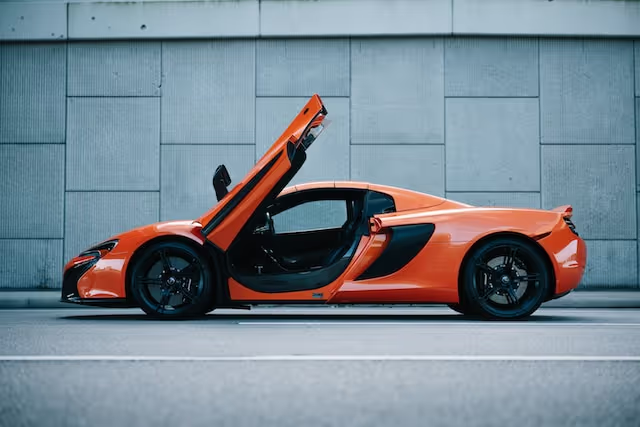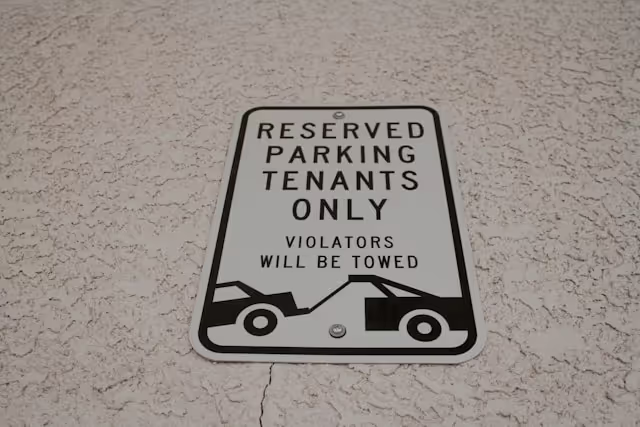
Blog
Wealth Preserving Tips for Buying a Car
How to make the most cost-effective decision
It’s no secret that Kiwis love cars, from classic Kiwi Utes to the new rage of city-slicking Teslas. In fact, our love for cars ranks little old New Zealand at seventh in the world for motor vehicles per capita. Perhaps our car obsession is due to our DIY mentality, or the lack of decent public transport? Whatever the reason, a car is an expensive asset that most of us own.
Typically, we trade in or buy a new car every few years. But before you buy your next new set of wheels, it pays to remember that cars are depreciating assets.
- In fact most cars spend 95% of their time sitting idle somewhere.
- Buying a car should be about what you need, not what you want (unless you are a billionaire of course!) so be sure to get a car fit for purpose and work out your budget beforehand.
- Buying the wrong car can easily cost you thousands of dollars.
Anyone serious about growing their wealth won’t be wasting too much on cars. We’ve compiled some tips to help you make the most cost-effective decisions possible when you purchase your next car.
The Signs It’s Time to Replace Your Current Vehicle
Before we turn to what to look for in a replacement car, here’s a few signs it’s time for one:
- Cost of repairs. Vehicles don’t last forever, and there comes a point where maintaining the cost of an old car isn’t worth it. If major repairs are needed, or if regular maintenance is starting to add up, this can often be uneconomical to fix. For example, the cost to remedy an engine failure or replace a transmission can sometimes come in at half the vehicle’s financial worth.
- Lifestyle changes. A car needs to suit you and your family’s needs (if you have one). If your household is growing it could mean it’s time to upgrade to a people mover that fits the kids, dogs and all the groceries! Or for those at a later stage of life, downsizing is perhaps a good idea. A retiring couple may be able to sell two cars and replace them with one. Or a couple living in the city may find they can get by with one car too.
- Safety. Safety should always be a priority when it comes to vehicles. Last year 378 people lost their lives on New Zealand’s roads. If you’re questioning the safety features of your existing (aka ageing) vehicle, then it’s probably time to get an upgrade. Take a look at some of the latest safety features that are now available on models in today’s market and compare them to what your car is equipped with.
Things to Keep in Mind Before Your Next Car Purchase
Avoid Borrowing Money to Pay For Your Car
It can be tempting to take out a loan to buy your dream car model, but it’s strongly advised to resist this. Only in selected situations should you borrow money to buy a car – for instance:
- If you can’t afford a suitable vehicle outright but need one to travel to and from work.
- If you can get decent interest rates and the vehicle is purchased as a business asset. This means you’ll likely be able to depreciate the asset for tax purposes, and deduct the interest as a taxable expense (this includes most tradies buying a ute).
Why? Because interest rates on finance for vehicles are generally high, with rates in New Zealand starting around the 8.95% mark. You end up paying a lot more than the initial price of the vehicle itself, which is worth avoiding. A bonus of paying in cash is that many dealers will accept a lower price for the car as they receive the whole amount instantly.
Buy a Used Car
Taking out a big loan with a high-interest rate to buy a car that will drop in value seems to be a terrible idea. So what other options might you have? Well, you can purchase a second-hand vehicle. Sure, buying a new vehicle does avoid the risk of getting a lemon and dealing with pesky maintenance costs, but the simple facts are that a car will depreciate in value the most in the first few years of its life. In fact, as soon as an average new car is driven off the lot, its value drops by 15 to 20%. For this very reason, it is generally believed that the best time to purchase a car is when it is two-to-three years old, as it has had its biggest drop in value, but is still new enough to be reliable.
Consider Ongoing Expenses
Cars are not cheap to run. Before you rush into purchasing a vehicle make sure you have considered maintenance costs which can include:
- Finance repayments - if you take out a loan.
- Petrol - petrol costs in New Zealand are not cheap. Consider how fuel-efficient the car you buy is as you don’t want to be paying hundreds of dollars every time you fill up.
- Vehicle license fee – to legally drive on the road in New Zealand you must have what is commonly called a “rego”. Petrol and electric vehicles cost $102.90 per year, and $172.55 for diesel.
- Car insurance – this varies dependent on the value you insure your car for and the level of insurance you decide to take out. Learn more: get the most from your car insurance
- AA membership – if you want to join the AA for breakdown assistance and membership benefits such as loans and inspections, factor this cost in – it’s $79-$89 per year depending on where you live.
- Warrant of Fitness (WOF) – to legally drive on the road you must have a WOF for your vehicle. This costs around $65-$72 and any failures will need to be fixed. This includes things like brake pads, worn tyres, and dead lights.
- Servicing – it is worth servicing your vehicle annually if you want to keep it in good health and prevent bigger problems from arising.
- Maintenance and repairs – ideally you’d get a reliable car that won’t cost the world to keep on the road. European cars usually have more expensive parts that can hike up total ongoing costs, brands such as Toyota on the other hand are typically cheaper to maintain.
- Diesel Cars surcharge – diesel has long been the cheaper option than running a petrol vehicle. However, a recent increase in price now sees it sitting around $2.08 a litre, making it not so cheap after all. Diesel users also have to pay road user charges (RUCs) which adds more expense to the diesel price.
Do Your Research
Trust Us, You Won’t Regret It
They say knowledge is power. If there is a specific car you are set on buying, do your research on what the market price is. This will give you a point of reference as to whether you're getting a good deal. If you know what something is worth, you have more bargaining power to haggle the price of the vehicle down.
When it comes to secondhand vehicles, it is non-negotiable to get a thorough pre-purchase check with a mechanic before you buy. You want peace of mind knowing that your vehicle is running smoothly and there aren’t any immediate repairs that will need to be completed. There’s nothing worse than buying a new car and finding out only a few months later that it needs thousands of dollars of repairs.
New Zealand imports many vehicles from Japan. You are entitled to the importation/export sheet which indicates the car’s condition - many buyers don't know about this.
A reliable guide to New Zealand’s cheapest (and safest) cars to run is available for free. The government’s RightCar site has the backing of extensive research and has a free database of running costs for many models. You can look up 500+ makes and models and get their safety rating and expected fuel cost per year.
General Running-Cost Knowledge
- Smaller engines are cheaper to run as they use less fuel, so if you’re tossing up a two-litre engine with a turbo and running costs are a concern – go for the two-litre. However, it’s worth noting that small engines are most efficient for city use but are inefficient travelling long distances at speed. It pays to really consider your circumstances before purchasing a vehicle, know what routes you typically drive and what you need the car for. A city run around versus a farm vehicle require very different things.
- Petrol cars are usually cheaper to buy than diesel equivalents however, diesel engines tend to use less fuel than the same petrol model, and are more economical than their petrol counterparts as a result. Yet as mentioned earlier, with the costs of RUCs, the cost-benefit of purchasing diesel isn’t so clear anymore.
- Manual gear cars are cheaper than automatics to buy. They can be cheaper to service at the mechanics too, as automatic transmissions are more complex than their manual counterparts and can be harder to diagnose and fix. However, if hill-starts make you anxious, the extra upfront cost for an automatic to make driving a little easier might be worth it - especially if you drive on busy roads in Auckland traffic!
- Electric and hybrid cars are much cheaper to run, but they cost a lot more to buy upfront. Prices will continue to fall as they become more normal and more cars enter the New Zealand market. We can also expect to see more second-hand hybrid and electric vehicles in future – right now they are too new for us to compare to petrol and diesel cars, and there are also question marks over how well the batteries in them will age. The good news is that the government is offering rebates for electric vehicle purchases in New Zealand. You can get up to $7,500 back on your purchase for new vehicles and up to $3,000 for used ones.
- Car insurance costs vary significantly depending on your situation, such as your car, driving history, and age. If you want to spend as little as possible every year on insurance, a popular vehicle with cheap parts (such as a Toyota Corolla) will be less expensive to insure than buying a luxury Mercedes Benz. Age and size are also factors - a new small car would be more costly to repair than an older wagon or SUV-type vehicle.
Make Use of Your Handy Friends
If you’re lucky enough to know someone handy with cars, ask for a little help. As we buy cars so infrequently, it can be difficult to determine if you’re getting a good deal (or not!) when buying a vehicle.
Your friends and family can also share experiences they had when purchasing a car, which can help ensure that you don’t end up with a lemon.
The Bottom Line: Make a Considered Car Purchase!
Thinking a purchase through thoroughly can save you a lot of money, stress, and hassle. Make sure that next time you buy a car, you take the time to think about the small things that can add up to make your purchase easier and more cost-effective.
You may also like:

Swedish Death Cleaning for the Digital Age

NZ Rent Forecast: What Tenants Can Expect


